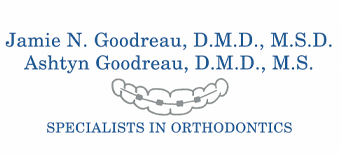TMJ

The temporomandibular joint, often abbreviated to TMJ, is one of the most important parts of your mouth, and also one of the smallest. The TMJ is a true testament to holistic care, as someone without the proper range of motion in this joint can be severely restricted from enjoying a standard quality of life.
What is TMJ?
The TMJ performs much like the hinge of a door, it connects your skull to your jawbone, and is responsible for opening and closing parts of the mouth. While it is small and unnoticeable at most times, the importance of TMJ is underlined when it is stricken with pain, disorder or lack of movement. There is a TMJ on each side of your jaw, forming the familiar opening and closing motion of your jaw and mouth.
Causes of TMJ disorders cannot always be pinpointed, but they can be diagnosed by a licensed professional. Genetics, arthritis, trauma and injury could play a major factor, and those who grind or clench their teeth are at further risk of developing a form of TMJ disorder.
What are Some Critical Symptoms of TMJ?
The easiest test for TMJ disorder can be done very quickly. If you try to open your mouth fully, and experience any sort of discomfort, pain or difficulty – it is time to call Dr. Jamie Goodreau and Dr. Ashtyn Goodreau of Chalfont, PA.
Pain and Tenderness
There is no substitute or explanation for pain. If you ever feel any sort of pain while conducting daily activities, such as biting, chewing, opening your mouth or even speaking – it should always be diagnosed by a professional team. Tenderness is a lingering sensation after some normal or more-out-of-the-ordinary activities. Both could be a sign of TMJ disorder, or possibly another diagnosis is necessary.
Difficulty Chewing
Because the TMJ primarily concerns itself with opening the jawbone and staying attached to the base of the skull, this means that chewing and biting will be extremely difficult. In addition, you may also experience gum and tooth pain, as this problem doesn’t often stay localized. Particular attention should be given to more difficult to chew foods, such as hard bread, red meat or candy.
Locking or Clicking Joints
Some form of clicking is normal, but consistent clicking of the jaw, or locking, is a sign of concern. Life is very difficult if you are unable to open or close your mouth, which makes basic movements and daily activities exhausting. If both joints are functioning properly, you will not notice any problems going about your day.
Your Local Quality Dental Care Team
You should never second-guess your health, or leave any sign of concern to the last minute. During your next appointment with the experienced team at Dr. Jamie Goodreau and Dr. Ashtyn Goodreau of Chalfont, PA, you can be sure that you are receiving the best possible care and recommendations that you deserve.


